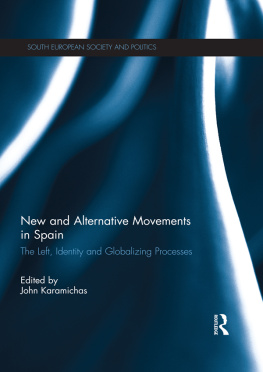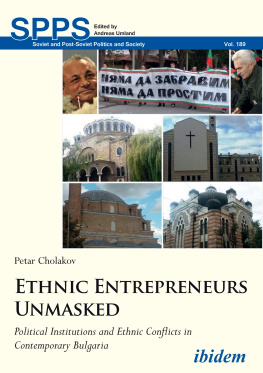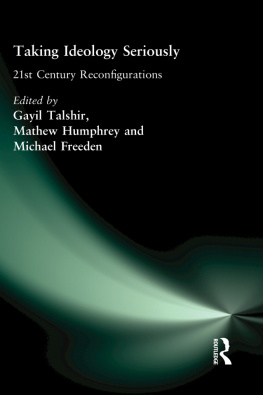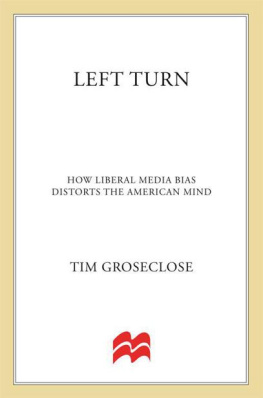ibidem Press, Stuttgart
Abbreviations of political parties and organizations
Abbreviation | Full name of the
organization in the original language | Full name of the organization in En g lish | Country of origin |
BCP | Balgarska komunisticheska partija | Bulgarian Co m munist Party | Bul garia |
BSP | Balgarska socialisticheska partija | Bulgarian Socialist Party | Bulgaria |
BZNS | Balgarski zemedel s ki naroden sajuz | Bulgarian Agrarian National Union | Bulgaria |
DPS | Dvijenie za prava i svobodi | Movement for Rights and
Fre e doms | Bul garia |
FSN | Frontul Salvrii Naionale | National Salvation Front | Romania |
GERB | Grajdani za evropejsko razvitie na Ba l gar i ja | Citizens for the European Develo p ment of Bulgaria | Bulgaria |
KS | Komunistick strana e s koslovenska | Communist Party of Czech o slovakia | C zechoslovakia |
KSM | Komunistick strana ech a Moravy | Communist Party of Bohemia and
M o ravia | Czech Republic |
KSS | Komunistick strana Slo v enska | Communist Party of Slovakia | Slovakia |
MSzMP | Magyar Szocialista Munksprt | Hun garian Socialist Workers ' Party | Hun gary |
MSzP | Magyar Szocialista Prt | Hungarian Socialist Party | Hungary |
OSD | Obedinenie za sozialna d e mokracija | Union for Social
D e mocracy | Bulgaria |
PCR | Partidul Comunist Romn | Romanian Co m munist Party | Romania |
PD | Partidul Democrat | Democratic Party | Romania |
PDS | Par tei des demokratischen Sozialismus | Party of Democratic Socialism | German Democratic R e public |
PES | --- | Party of the European Socia l ists | European Union |
PRM | Partidul Romnia Mare | Greater Romania Pa r ty | Romania |
PSD | Partidul Social D e mocrat | Social Democratic Party | Romania |
PZPR | Polska Zjednoczona Partia Robotniczej | Polish United Workers ' Party | Poland |
SDL ' | Strana demokrat i ckej l ' avice | Party of the Dem o cratic Left | Slovakia |
SdRP | Socjaldemocracja Rzeczypospolitej Polskiej | Social Democracy of the Republic of P o land | Poland |
SDS | Sajuz na demokr a tichnite sili | Union of the Democratic Forces | Bulgaria |
SED | Sozialistische Einheitspartei Deutsc h lands | Socialist Unity Party of Ge r many | German Democratic R e public |
SPD | Sozialdemokratische Partei Deutsc h lands | German Social Democratic Party | Germany |
SPS | Socjalistika partija Srbije | Socialist Party of Se r bia | Serbia |
SSRNJ | Socjalistiki savez radnog naroda J u goslavije | Socialist Alliance of Working People of Yugoslavia | Yugoslavia |
Other important abbreviations
Abbreviation | Fu ll name |
CEE | Central and Eastern Europe |
Comecon | Council for Mutual Economic Assistance |
CSP | Communist Successor Party |
GDR | German Democratic Republic (East Germ a ny) |
Preface
It is now 11 years since Bulgaria became a full NATO member , and 8 years since the country acceded to the European Union. Yet Bulgaria is still receiving relatively weak coverage in the annals of the European and global social science s a situation evident both from the limited number of special editions devoted to the country , and from the gaps in the literature to which scholars often explicitly refer. There are diverse reasons for this state of affairs. The socialist period of Bulgaria ' s history is not to be r e membered for an impressive resistance against the regime or for strong expressions of discontent against the Soviet domination. Later, in the pr o cesses of transition to demo c racy in Central and Eastern Europe, Bulgaria did not come to present a success story or model for emulation. On the other hand, there was no dramatic failure, such as, say, a triumph of a u thoritarian trends, to be observed in the country, either. In the context of the Balkans, Bulgaria happily avoided the fate of neighbouring Yugoslavia and did not get tangled in the quagmire of civil wars. Markedly positive or resolutely negative cases usually tend to attract greater attention. Bulga r ia ' s case did not fall in either of those categories. Nevertheless, unique hi s torical experience could be found here. It is an experience which relates to the peculiarly intertwined roles of Europe and Russia in the national deve l opment as well as to the anti-fascist resistance and the social struggles of the contemporary world.
Those introductory remarks are needed as initial steps to motivate interest in one of the important manifestations of the Bulgarian political process for many decades: the functioning of the Bulgarian left. This interest can be positioned in a twofold context. The first aspect of this context is the bac k ground of the transition to post-socialist democracy and the specific role of the principal organizational agent of the Bulgarian left, the former Co m munist Party. In contrast with its counterparts in the other former Eastern Bloc countries, the party maintained its unity and influence in a pluralist p o litical model from the very start of transitions, and remained the only one among them to maintain emotional closeness to Russia. The second a s pect of the context is the perspective of the current situation, in which the Bulgarian left can become the object of interest given the serious crisis it is now experiencing an organizational, moral, political, and ideological cr i sis that has significantly affected its image.
The issue of the adaptation and transformation of the communist succe s sor parties in CEE has received a significant place in the scholarly debate. A cursory glance on the amassed literature which is impressive even in its sheer volume already shows that what we have at hand is a number of different strategies and trajectories of development. We cannot co n struct some general scheme claiming to be valid for all former socialist countries, and then apply it to Bulgaria to fill it with the required factual content.
That is why two central questions are facing us here. First, which are the factors that can help explain the transformation of the Bulgarian Co m munist Party in the new democratic situation factors which, in addition, have contribu t ed to its success, at least in comparison with all other former Eastern Bloc counterparts? Second, which factors in the course of that transformation led to the crisis trends that found their most distinct expre s sion in the early 2010s?











